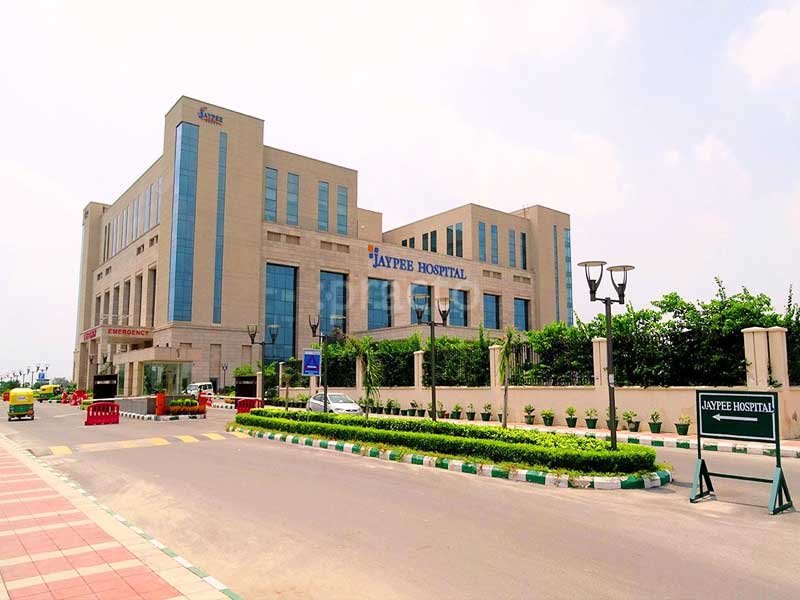Home Cost Cosmetic and Plastic Surgery Nerve Transfer

The cost of Nerve Transfer Surgery in India ranges from 3500-4000 USD.
India's reputation for offering cost-effective healthcare solutions makes it an ideal choice for patients seeking Nerve Transfer procedures.
Nerve transfer, a surgical technique involving the reconnection of healthy nerves from a donor site to a target site, where the original nerves have been damaged or severed, holds promise in restoring function and sensation to affected areas, such as the hand, arm, or leg.
Now, let's delve into the comprehensive details of Nerve Transfer, exploring its success rate, recovery tips, and more.
Nerve transfer is a surgical procedure that involves reconnecting healthy nerves from a donor site to a target site where the original nerves are damaged.
This technique aims to restore function and sensation in areas affected by conditions like brachial plexus injury, spinal cord injury, peripheral nerve injury, or facial paralysis.
It includes moving the distal segment of a denervated nerve to the distal portion of a healthy expendable nerve, providing excellent functional results, especially in cases where nerve grafting is not feasible or significant gaps exist.
Nerve transfer is particularly beneficial for clients with multilevel nerve injuries, extensive scarring, or proximal nerve root avulsions, aiding in faster reinnervation of target muscles and preventing full atrophy.
1. Cost Savings: Patients can save a lot of money by receiving a Nerve Transfer in India, which is far less expensive than in Western nations.
2. High Success Rates: India's effective outcomes result in an improvement in symptoms and life quality.
3. World-class healthcare is available, including cutting-edge facilities, cutting-edge technology, and highly qualified medical personnel.
4. Diverse Therapies: India provides a wide variety of medical treatments for a range of ailments.
5. Cultural Enrichment: Treatment coupled with sightseeing in India provides a singular and unforgettable experience.
1. Choice of Hospital: The reputation and location of the hospital significantly impact the overall cost.
2. Type of Hospital Room: The level of comfort and privacy in the hospital room contributes to expenses.
3. Doctor's Fees: The experience and expertise of the performing physician are a part of the cost.
4. Diagnostic Procedures: Pre and post-operative diagnostic tests may be required, adding to the total expenditure.
5. Post-Operative Care Costs: Expenses related to follow-up appointments, care, and potential complications play a role in the overall cost.
The success rate of Nerve Transfer Surgery in India is around 90-95%.
The recovery period after nerve transfer surgery depends on several factors, such as the type and location of the injury, the length of the nerve graft, and the adherence to physical therapy.
In general, nerve fibers grow at a rate of about an inch per month, so it may take several months to see signs of improvement. The maximum recovery may take up to two years after surgery.
| Nerve Transfer cost | |
|---|---|
| Treatment Name | Estimated Cost |
| Nerve Transfer | 3500-4000 USD |
The cost of Nerve Transfer Surgery in India ranges from 3500-4000 USD.
The success rate of Nerve Transfer Surgery in India is around 90-95%.
You'll need to stay in the hospital for 3-4 days following Nerve Transfer Surgery in India.
The expected recovery period after Nerve Transfer Surgery in India varies but typically spans several months to up to two years, contingent on factors like the injury type, nerve graft length, and adherence to physical therapy.
Yes, potential risks of Nerve Transfer Surgery in India include pain, swelling, redness, bruising at the treatment site, nerve damage, rejection, mismatch, numbness, infection, and bleeding.
Yes, it is necessary to have a companion.
Two weeks after the surgery.
Yes, you can do your own research and choose your therapist.
You can use paracetamol regularly to manage mild to moderate pain. Moderate pain can be managed using non-steroidal anti-inflammatory drugs (NSAIDs) like diclofenac or ibuprofen.
Yes, insurance will cover the cost of Nerve Transfer Surgery in India.
To discover the top doctors or hospitals in India, you can visit our website, mejocare on the doctors' page, you can filter and find the finest doctors, while on the hospital page, you can identify the best hospitals. Additionally, you can reach out to us, and we will gladly offer you all the necessary suggestions and information you need.
The Nerve Transfer Surgery process typically lasts several hours.
No, there is no waiting list for Nerve Transfer Surgery in India.
Yes, you may need to undergo tests such as EMG, blood tests, NCS, MRI, and ultrasound before Nerve Transfer Surgery.
Local anesthesia with sedation or general anesthesia is typically used during Nerve Transfer Surgery in India, based on patient preference and medical condition.
The timing to return to work after nerve transfer surgery varies based on factors like the type and location of the nerve injury, job requirements, and the progress of nerve regeneration. Consult with your surgeon and therapist for personalized guidance, considering the slow process of nerve regeneration, which may take several months or more.
No specific dietary restrictions before or after Nerve Transfer Surgery. Emphasize a protein-rich diet for tissue repair, consume vitamins/minerals from fruits and vegetables, stay hydrated with water, and follow prescribed medications/supplements.
Post-hospitalization care includes monitoring vitals, wound care, managing complications, rehabilitation services, and follow-up.

Plastic, Aesthetic & Reconstructive Surgeon
25+ Years of Experience

Beds: 539
New Delhi

Beds: 710
New Delhi

Beds: 650
New Delhi

Beds: 299
Gurugram

Beds: 380
New Delhi

Beds: 402
New Delhi

Beds: 1300+
Gurugram

Beds: 504
Noida

Beds: 104
Gurugram

Beds: 300
Gurugram

Beds: 162
New Delhi

Beds: 400+
New Delhi

Beds: 70
Gurugram

Beds: 325
Faridabad

Beds: 550
Gurugram
Our care team can help you.
